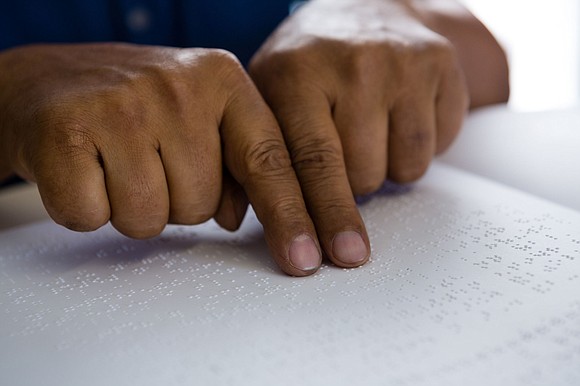Rice Hosts Innovative Symposium On Braille Reading and Writing
Style Magazine Newswire | 2/6/2018, 12:39 p.m.

HOUSTON -- (Feb. 6, 2018) -- Braille, the writing system that allows people who are blind or have other visual impairments to read by touch, was once greatly understudied by the academic community. This began to change with new research that emerged two decades ago showing that the brain’s visual cortex lights up when people who are born blind read braille.
“That wasn’t supposed to happen, right? The visual cortex was for vision,” said Rice University’s Robert Englebretson, department chair and associate professor of linguistics. “I was talking with a neuroscience professor about this in the late 1990s who said, ‘If that’s true, it’s really going to change a lot of what we understand about the brain.’ Well, it turns out that it is true and it did change a lot of what we understand about the brain.”
Today Englebretson and research partner Simon Fischer-Baum, assistant professor of psychology, are hoping to launch even greater investigations into what braille can teach researchers about how the brain works with an upcoming Scientia Small Conference on Interdisciplinary Research Perspectives on Braille Reading and Writing, a series of lectures and workshops to be held March 8-10 in Rice Memorial Center's Farnsworth Pavilion.
Other conferences on braille have been held in the past but have focused primarily on advocacy and literacy rather than academics or research, Englebretson said. The Scientia Small Conference has invited academics and researchers from across a wide selection of fields and specialties, including professors from Baylor College of Medicine, the University of California at Berkeley, Johns Hopkins University and the University of Michigan. An international cohort of scholars from New Zealand’s University of Auckland, Ireland’s Maynooth University, England’s Royal Holloway University of London, Canada’s University of Montreal and Estonia’s Tallinn University will also be in attendance.
“We have people from the special education world who are speaking and we have people from the cognitive and neuroscience and linguistics world,” Englebretson said. “And what we hope to get out of this is some kind of new synergy -- some kind of new collaborative research projects that many of the people present might want to do together that they wouldn’t be able to do independently.”
Seating for the conference is limited, so early registration is recommended. The registration fee of $30 includes all talks and round-table discussions as well as coffee and lunch breaks. Online registration ends Feb. 21.
The conference agenda and registration information are available here.



